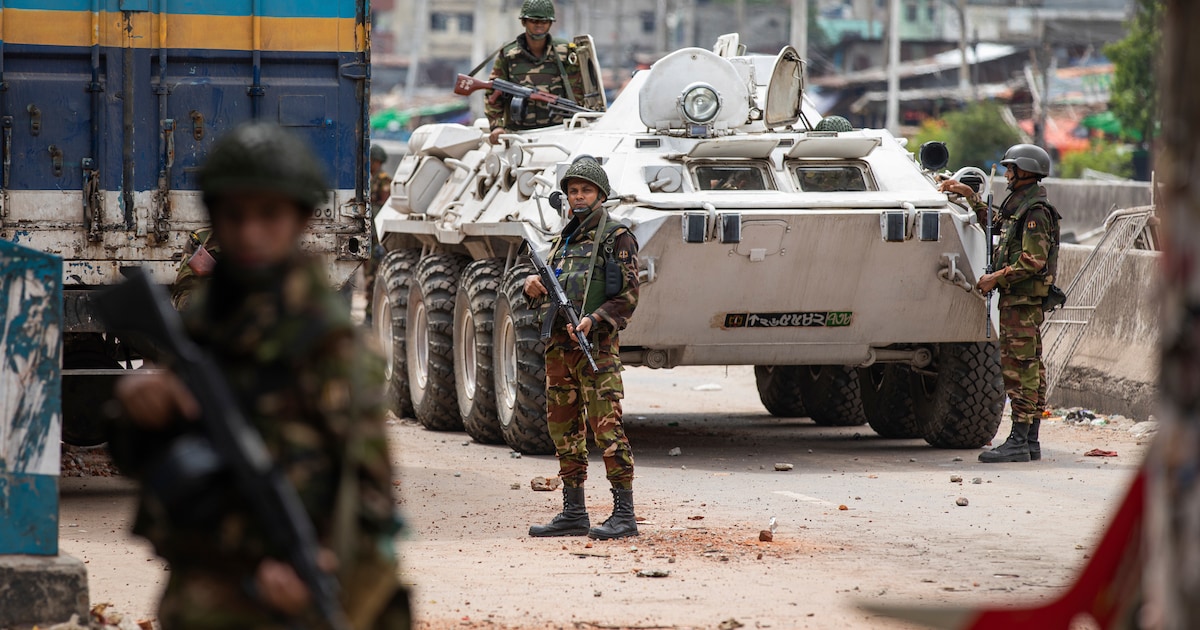
Days of protest, deployment of the army, closure of all schools, curfew and internet blackout. In Bangladesh, students and the government have been engaged in a fierce battle over a highly controversial decision. A court recently ruled that quotas will again be applied to 56 percent of government jobs. These would no longer go to the most qualified candidate, but to interested parties from certain groups. Families of people who fought for Pakistan’s independence, women or people from underdeveloped areas of the country.
In the country plagued by high unemployment, the decision angered many students. During her previous term in office in 2018, Prime Minister Sheikh Hasina abolished such fees. Throughout the week, students took to the streets in droves, setting cars on fire and throwing bricks. Police retaliated, using tear gas, rubber bullets and stun grenades.
Now the Supreme Court is trying to ease the conflict. It has ruled that 93 percent of government jobs should go to those with the best credentials, while the quota scheme applies to only 7 percent.
The question is whether the genie will now go back into the bottle. The protesters have already said that it is not enough. In addition, unrest has been raging in the country for some time. There was also great discontent around the January elections, which helped Hasina win a new mandate. She is becoming increasingly autocratic, she is accused. And textile workers who were demonstrating and demanding that they finally get the living wage they had been promised for so long were locked up en masse.
At least four organisers of last week’s protest told the BBC in Bengali that they want to continue the actions until the arrested student leaders are released and the internet and mobile phones are working again. They find the promise vague. “The Supreme Court ruling is not clear to us. There is no clear statement on all kinds of quotas,” said Abdul Quader, one of the organisers.
Since the government ordered people to stay home on Friday, soldiers have been patrolling the largely deserted streets of the capital, Dhaka. On Sunday, people were allowed out to do some shopping between 3pm and 5pm. As the Supreme Court handed down its ruling, a tank stood outside the courthouse.
Read also:
How PM Hasina brought political stability to Bangladesh
Bangladesh is one of the fastest growing economies in the world. And anyone wondering who is responsible for this will get the answer every few metres in the form of billboards showing Sheikh Hasina smiling at people.





